Nigeria: Besonderheiten der Polymerbanknote 20 Naira
Am 28. Februar 2007 wurde die erste Polymerbanknote in Nigeria ausgegeben. Eigentlich nichts besonderes, dennoch gibt es gravierende Unterschiede und zwei Varianten.
Inhaltsverzeichnis
[Verbergen]Variante 1
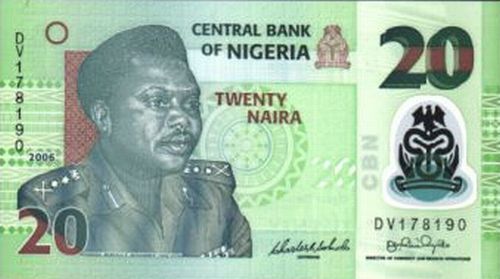
Druckerei: CBN / Centralbank of Nigeria
Besonderheiten: 6 Ziffern nach Präfix und schlechterer Druck
Bekannte Präfixe: DV, EF
Signum: Professor Chukwuma Charles Soludo und Ben Onyido
Größe: 15mm x 78mm
Auflage:
Variante 2
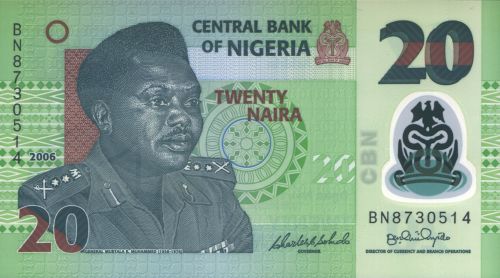
Druckerei: Giesecke & Devrient im Betriebsteil Malaysien
Besonderheiten: 7 Ziffern nach Präfix und besserer Druck
Bekannte Präfixe: AB, AM, AN, AR, AT, AU, AZ, AN, BC, BK, BN, BQ, BJ, CJ, DZ
Signum: Professor Chukwuma Charles Soludo und Ben Onyido
Größe: 15mm x 78mm
Auflage:
Beschreibung
Vorderseite: Murtala Ramat Mohammed (* 8. November 1938 in Kano, † 13. Februar 1976 in Lagos) war von 1975 bis 1976 Staatspräsident von Nigeria
General Murtala Ramat Muhammed (1938-1976) General Murtala Mohammed, an army general, Head of State (July 1976 - February 1976), and first national hero, was born 8th November 1938 in the Kurawa Quarters of Kano City. He enrolled into the Nigerian Army after high school, and trained at Sandhurst Royal Academy, the Catterick School of Signals, and the Joint Services' Staff College, all in England.
General Mohammed served in the Nigerian contingent to the United Nations' Peace Keeping Force to Congo, and on his return, returned to the Signals Corp of the Nigerian Army. During the Nigerian civil war, he was the first General Officer Commanding, Second Infantry Division. After the civil war, General Mohammed returned as head of the Signals Corp, but later served as a Commissioner in the military government. On 29th July, 1975, he was named Head of State and Commander in Chief of the Armed Forces following a military coup.
General Mohammed's short reign had a major impact on subsequent developments in the Nigerian nation. On assumption of office, he reformed the civil service and other major institutions. His government outlined a political program that included the creation of seven more states, the drafting of a new constitution, and the organization of state and national elections as a prelude to a return to civilian rule on 1 October 1979. A committee on a new federal capital was appointed, the findings of which culminated in the change of the Federal capital from Lagos to Abuja. His government also ran a dynamic foreign policy.
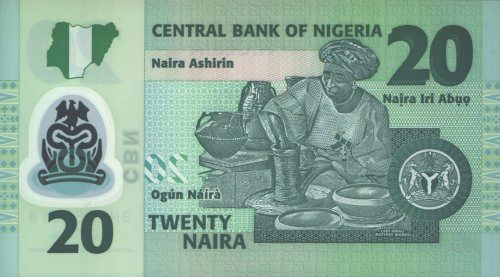
Rückseite: Töpfer Ladi Kwali (* 1925, † 1983)
Sicherheitsmerkmale
Die Banknote unter ultraviolettem Licht.
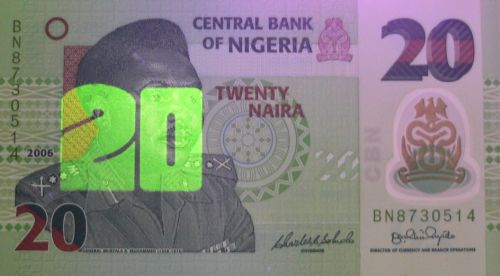
Der Intaglio (fühlbare) Druck.
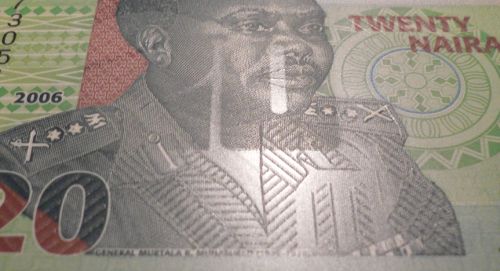
Ersatznoten
Derzeit noch unbekannt.